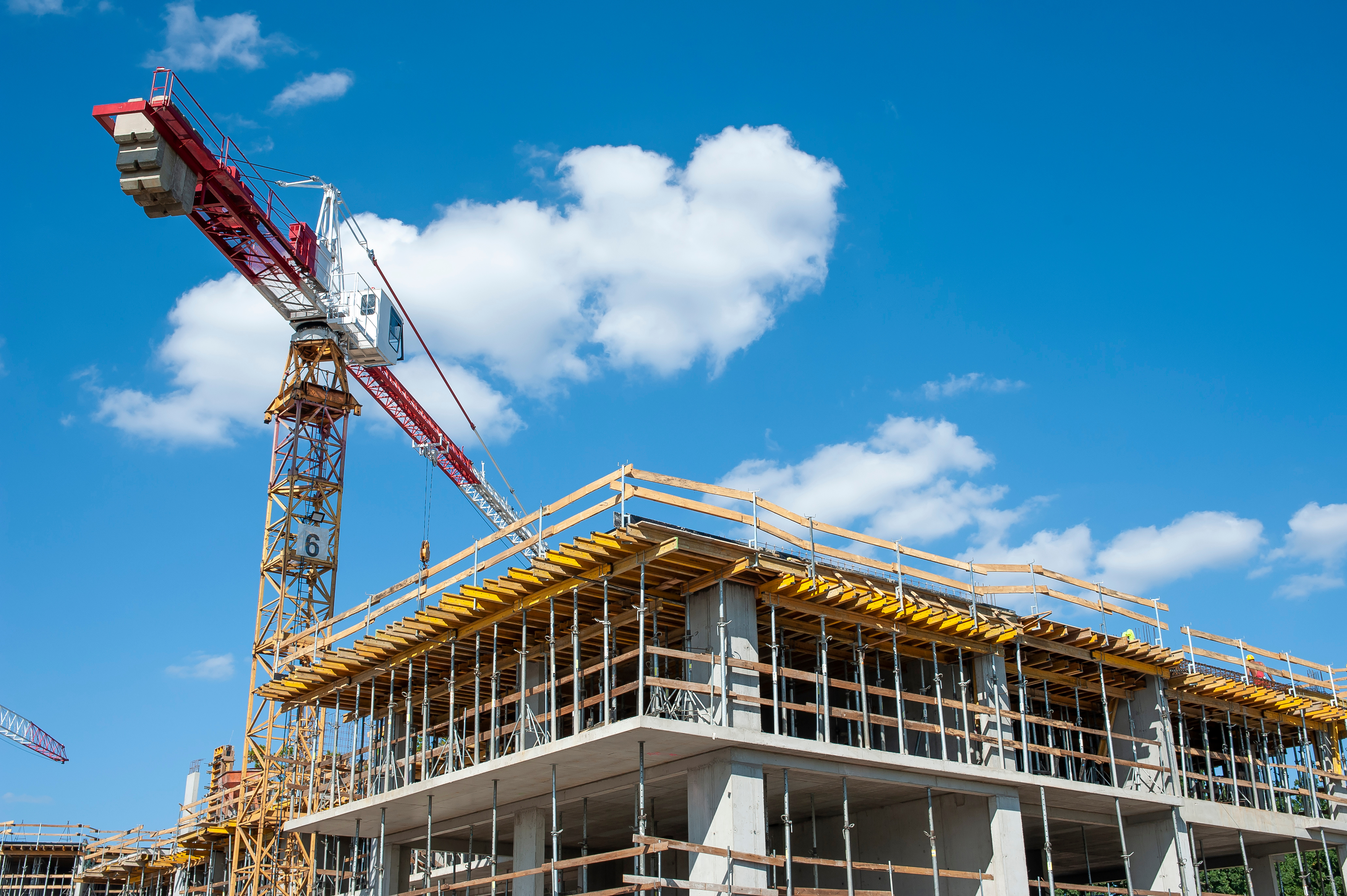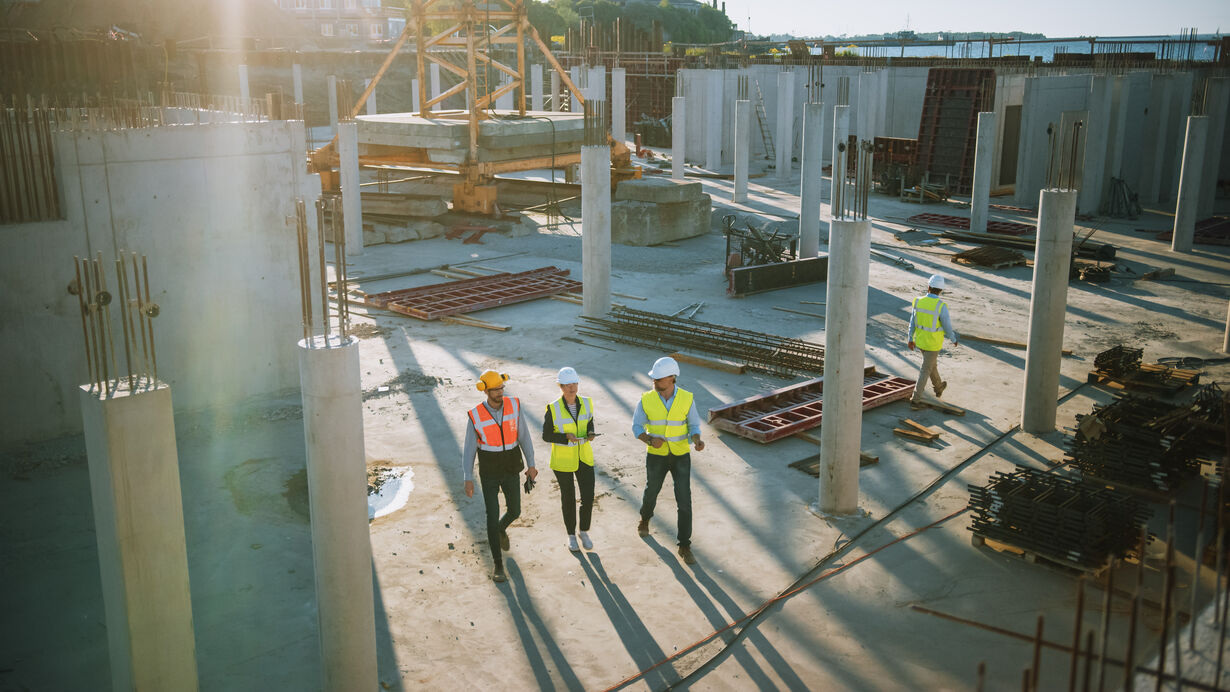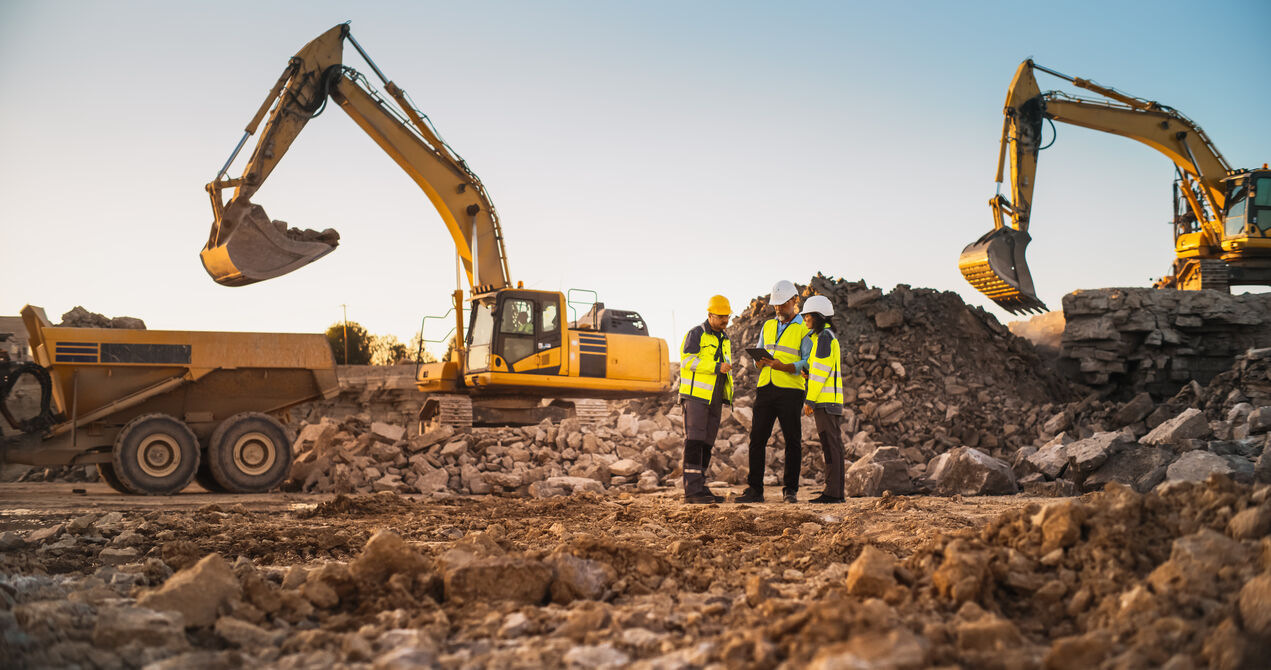

In commercial construction, time and efficiency are everything. A well-executed project can strengthen relationships, enhance profitability, and deliver long-term property performance. But when deadlines slip and budgets swell, the impact ripples across every stakeholder—from developers and investors to tenants and contractors.
Delays in commercial construction project planning aren’t just frustrating—they’re expensive. They can lead to labor cost overruns, equipment downtime, disrupted tenant move-ins, and lost revenue. Many of these issues stem from a handful of preventable mistakes during the site development phase.
At Apex Contracting Group, we’ve seen how early-stage coordination, detailed planning, and proactive communication can make or break a project timeline. Here’s a look at the most common site development pitfalls—and how to avoid them.

Every project begins with a plan—but not all plans are created equal. One of the leading causes of construction delays is inadequate construction project management during the preconstruction phase.
Preconstruction isn’t just about design; it’s about understanding every variable that could affect cost, schedule, or constructability. This includes evaluating:
Without a comprehensive preconstruction assessment, teams often encounter unforeseen challenges once ground is broken. Effective commercial construction project management ensures these variables are addressed early—reducing the risk of change orders, redesigns, and rework down the line.
Few things cause project slowdowns like mismanaged utility work. When underground lines are installed incorrectly or existing utilities aren’t accurately identified, the result is costly excavation, relocation, or even damage to critical infrastructure.
This is why mapping utilities before construction begins is essential. Utility mapping provides precise data on the location and depth of existing systems such as:
Comprehensive mapping allows teams to coordinate installations efficiently and avoid conflicts between utilities and structural foundations. At Apex, we integrate utility mapping and coordination into our preconstruction workflows to ensure field crews work from clear, accurate data. It’s a proactive step that saves both time and money.
Learn More About Utility Planning

Even the most detailed plans can fall apart without consistent communication. Miscommunication is one of the most common construction mistakes across all project types—and site development is no exception.
When engineers, subcontractors, and utility providers operate from different sets of information, schedules begin to slip. A simple disconnect about sequencing or material availability can have a domino effect on downstream activities.
Strong construction project management practices focus on clear documentation, centralized communication channels, and regular coordination meetings. Tools like project management software and cloud-based drawing platforms also help ensure every team member is aligned on design changes, timelines, and field conditions in real time.
Before any excavation begins, a thorough understanding of the site is essential. Skipping or minimizing geotechnical studies, surveys, or environmental assessments can lead to unexpected issues such as unstable soil, hidden debris, or contamination.
These oversights can result in halted work, redesigns, or even safety hazards—each one delaying progress and increasing costs.
Apex prioritizes early and detailed site evaluations that go beyond the basics. Our teams partner with experienced civil engineers and surveyors to analyze site conditions and confirm that grading, drainage, and utilities align with both design intent and real-world constraints.

A well-built schedule is like a roadmap—it guides every phase of construction. However, unrealistic timelines or poor sequencing often lead to bottlenecks that derail even the best-managed projects.
Common scheduling pitfalls include:
Effective commercial construction project management means creating a schedule based on both data and experience. By integrating input from every trade partner and factoring in local conditions, teams can build timelines that are realistic, achievable, and flexible enough to handle unexpected changes.
Navigating municipal permitting and regulatory approvals can be a slow process. When teams underestimate the time required for plan reviews or inspections, projects stall while waiting for approvals.
In some cases, missing or incomplete submittals can result in additional delays—or worse, stop-work orders.
Strong commercial construction project planning includes a clear understanding of all required permits, submittals, and inspection milestones. Partnering with a contractor familiar with local jurisdictions can significantly streamline the process and prevent regulatory roadblocks before they occur.

Mother Nature is one variable even the best planners can’t control—but they can prepare for it. Heavy rain, snow, or extreme temperatures can slow grading, affect concrete curing, or disrupt material deliveries.
Many construction project management professionals mitigate this by building buffer time into their schedules and sequencing weather-sensitive work during optimal seasons. Environmental mitigation, such as erosion control and proper drainage, also helps prevent water-related damage that could delay future phases of construction.
Our Defect and Reconstruction Services
In today’s volatile construction environment, supply chain issues remain a major cause of project delays. Materials like steel, concrete, and electrical components often have long lead times.
If procurement isn’t managed proactively, a single delayed shipment can hold up multiple stages of work. Experienced contractors anticipate this by preordering critical materials, vetting multiple suppliers, and scheduling deliveries to align with project sequencing.
Apex’s approach to commercial construction project management involves constant tracking of material availability and coordination between vendors, ensuring supply issues don’t derail progress.

Once construction begins, site logistics play a critical role in maintaining workflow. Poor coordination between trades, inadequate staging areas, or unclear access routes can create traffic congestion, safety risks, and downtime.
An efficient site layout maximizes space, separates active work zones, and establishes clear pathways for deliveries and waste removal. Regular site coordination meetings help keep crews synchronized and ensure that everyone understands the day’s priorities and safety protocols.
While the goal is to build quickly, cutting corners on quality often leads to costly rework. Mistakes like improper compaction, inaccurate utility elevations, or out-of-spec concrete pours may not surface until inspection or post-construction—forcing teams to redo work at double the cost.
A rigorous quality control plan, complete with daily inspections and clear documentation, ensures issues are caught early. At Apex, our commitment to quality assurance helps clients avoid the kinds of common construction mistakes that lead to long-term maintenance issues and warranty claims.
Our Building Envelope Services

Ultimately, preventing site development delays comes down to proactive management. Effective construction project management combines communication, coordination, and accountability at every stage.
At Apex Contracting Group, our process is built around three key principles:
This approach ensures that projects stay on track—delivering predictable outcomes and measurable value for property owners and developers alike.
In commercial construction, avoiding delays isn’t about working faster—it’s about working smarter. Most setbacks are preventable with detailed planning, proper communication, and skilled project management.
From mapping utilities and coordinating schedules to managing procurement and quality control, every step of the site development process requires precision and foresight.
At Apex Contracting Group, we bring decades of expertise in commercial construction project management, helping developers and property owners minimize risk and deliver projects on time and on budget. When every day counts, trust a partner that builds success from the ground up.
What are the main causes of delay in building construction?
Delays often stem from poor planning, late material deliveries, unforeseen site conditions, and lack of communication between teams during construction.
Why are construction projects delayed?
Projects are typically delayed due to design changes, weather conditions, permitting issues, or ineffective commercial construction project management that fails to coordinate all moving parts.
Which factor most contributes to delays in construction?
Insufficient preconstruction planning and lack of stakeholder coordination are the biggest contributors to delays in commercial construction project planning.
What is a compensable cause of delay?
A compensable delay occurs when the contractor is entitled to additional time and payment—usually due to owner-caused issues like late design approvals, scope changes, or restricted site access.
Ready to streamline your next site development project? Contact Apex Contracting Group today to learn how our proactive planning and management approach can help you avoid costly delays.